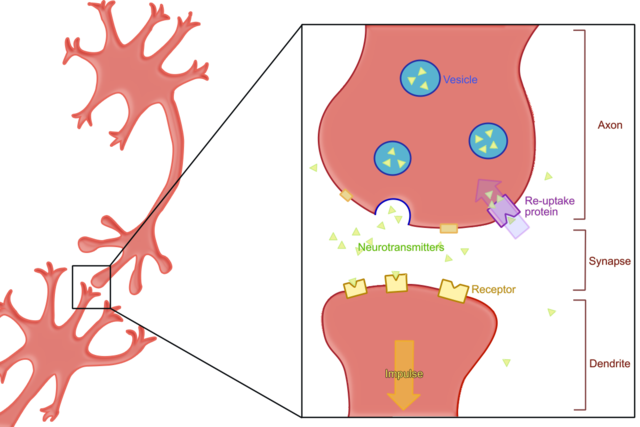The brain requires certain levels of neurotransmitters to function. These neurotransmitters cause the brain to 'fire' in different ways and for different lengths as long as they are activating neurons.
Neurotransmitter theories discuss the idea that mental disorders can be the result of neurotransmitter imbalances in the brain, resulting in too little or too much activation of the effected neurons. For instance, if neurons are not working properly, the neuron releasing the neurotransmitter may re-absorb it too much or too quickly (reuptake), resulting in less activation of the receiving neuron. The receiving neuron may also have a malfunction related to the amount of its receptors, with too little or too many leading to over-excitation or too little stimulation. Lastly, it is theorized that the receiving neuron may not become activated enough due to the receiving neuron releasing too many enzymes into the synaptic gap, which breaks down the neurotransmitters (degradation).

Some of the most researched and well known neurotransmitters implicated in mental disorders include serotonin, dopamine, norepinephrine, and gamma-aminobutyric acid (GABA). Serotonin and norepinephrine are particularly related to mood disorders due to their action in regulating emotions. Dopamine is closely related to reinforcements and rewards, while GABA decreases the effects of other neurotransmitters.
Lastly, the endocrine system is implicated in biochemical causes of abnormality due to the fact that hormones can be related to symptoms in mental illness. Specifically, the hypothalamic-pituitary-adrenal axis (HPA axis), is responsible for the release of various hormones, including cortisol, that regulate the stress response. Dysregulation in this system is theorized to result in anxiety disorders and depression.
© BrainMass Inc. brainmass.com April 25, 2024, 5:24 am ad1c9bdddf